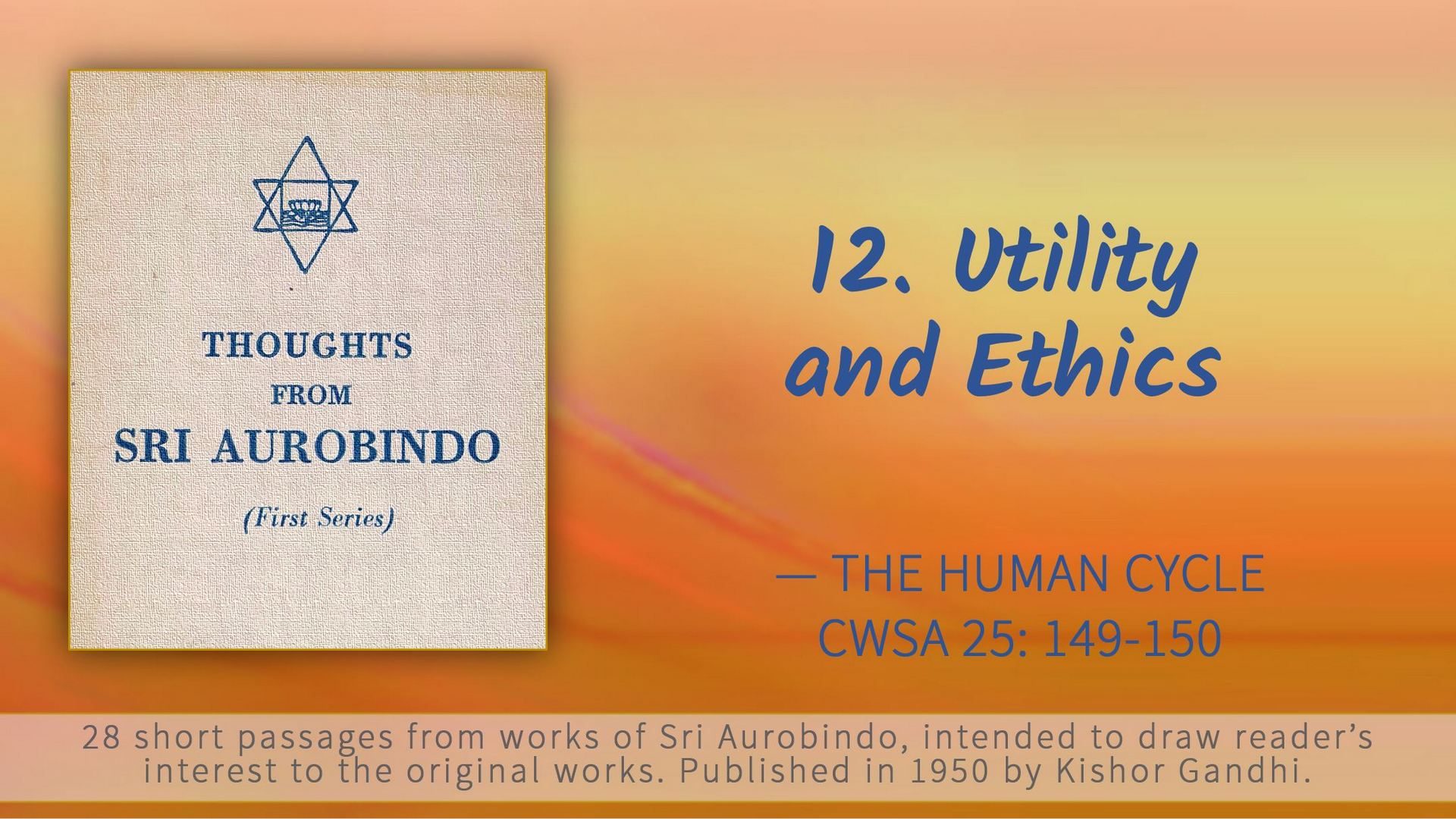
Utility is a fundamental principle of existence and all fundamental principles of existence are in the end one; therefore it is true that the highest good is also the highest utility. It is true also that, not any balance of the greatest good of the greatest number, but simply the good of others and most widely the good of all is one ideal aim of our outgoing ethical practice; it is that which the ethical man would like to effect, if he could only find the way and be always sure what is the real good of all. But this does not help to regulate our ethical practice, nor does it supply us with its inner principle whether of being or of action, but only produces one of the many considerations by which we can feel our way along the road which is so difficult to travel. Good, not utility, must be the principle and standard of good; otherwise we fall into the hands of that dangerous pretender expediency, whose whole method is alien to the ethical. Moreover, the standard of utility, the judgment of utility, its spirit, its form, its application must vary with the individual nature, the habit of mind, the outlook on the world. Here there can be no reliable general law to which all can subscribe, no set of large governing principles such as it is sought to supply to our conduct by a true ethics. Nor can ethics at all or ever be a matter of calculation. There is only one safe rule for the ethical man, to stick to his principle of good, his instinct for good, his vision of good, his intuition of good and to govern by that his conduct. He may err, but he will be on his right road in spite of all stumblings, because he will be faithful to the law of his nature. The saying of the Gita is always true: better is the law of one’s own nature though ill-performed, dangerous is an alien law however speciously superior it may seem to our reason. But the law of nature of the ethical being is the pursuit of good; it can never be the pursuit of utility.
— The Human Cycle
The Human Cycle, The Ideal of Human Unity CWSA 25: 149-150



About Savitri | B1C3-10 The New Sense (pp.29-31)